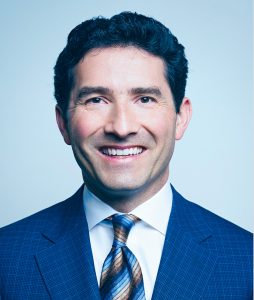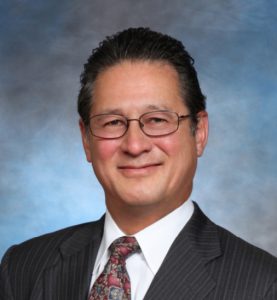♫ Nothing takes the past away
Like the future
Nothing makes the darkness go
Like the light…♫
Lyrics and Music by: M. Ciccone, M. L. Ciccone, P. Leonard, recorded by: Madonna
After a break of a couple of years due to health concerns, we are resuming the New Year’s Legal Predictions Blog Post! We have reached out to our friends & colleagues for their insights into the future of the legal world. This year we are grouping everyone’s thoughts under 16 categories from “Artificial Intelligence in the law firm environment” to “Something you will be working on or thinking about in 2019.”
I am happy to present their thoughts and trust that they will be interesting, humorous and thought-provoking. I hope our dear readers will share their thoughts in the comments area!
1. Artificial Intelligence in the law firm environment
Andrew Clark
• AI is already seeing hype and uptake this year and will continue into next year. As decision-makers realize the hype is gathering momentum, the focus will shift to the risks associated with AI – which will delay actual implementation.
Eugene Meehan QC:
• Will AI and their juridical spawn replicate or replace us? Need to watch Blade Runner again, but only Ridley Scott’s Director’s Cut version – the one with the not-so-ambiguous ending.
• Service, filings, production, billings, and even reception will become increasingly automated. For some law firms. Not all.
Stewart Levine:
• Perfectly suited…perhaps better than many attorneys.
Andre Coetzee:
• Artificial Intelligence is no longer a buzz word and firms will leverage AI services to assist with mundane tasks so as to enhance productivity, save time, increase accuracy and allow the lawyer to focus on strategic work. Trust, however will be key in adoption of AI services. A few examples of the application of AI:
o automate legal searches of case law;
o proof reading of contracts and legal documentation;
o document analysis.
Nikki Black:
• AI software development will continue to increase in 2019 and we’ll see some really creative tools come to light that will help reduce the mundane aspects of practicing law, allowing law firms to streamline their workflows so that lawyers can focus on more high level, complex analytical issues. So keep an eye on AI advancements in the legal tech space – there’s sure to be a lot of interesting developments in 2019!
David J. Bilinsky
• AI will be applied for success in cases where the data sets (contracts, discovery, case law) are better suited to automated processes either due to the prohibitive costs of traditional search, the need for speed of search results or where substantive increases in accuracy favour such processes. The challenge for small to medium law firms will be to lever this technology as the application of AI currently favour the resources of a larger law firm.
2. Alternate legal service providers
Bill Lipner:
• Startup – both “public” and “in-house incubations” – will begin to spring up like mushrooms in the rainy season, as AI enters the early-market stage of development. Point-applications will continue to chip away at repetitive data-intensive applications within law firms, nudging the efficiency-curve upward.
Stewart Levine:
• Growing and rightly so…with AI great for delivery and cost to consumer.
Bill Lipner:
• You’ll see a quantum leap as legal service consumers continues to seek faster-better-cheaper services…
David J. Bilinsky:
• There are many factors that can be resisted, but battling against economics is one where the battle is ultimately futile. The demands for more affordable access to justice will continue to get louder and the movements calling for change will ultimately be successful. This will translate into the loss of exclusivity for lawyers as consumers demand more affordable justice in such areas as family law, residential tenancies, low value claims and others. Non-lawyer alternative service providers will be licensed to provide legal services in these areas, resulting in the “Wall of Jericho” that protects lawyers to come a’tumbling down.
3. Alternate business structures
Eugene Meehan QC:
• Advanced digital legal assistant technologies will begin to displace the need for some office staff at some firms, in some areas of law, but again, not all. Some areas of practice are necessarily labour intensive, and benefit from higher than average staff ratios. At Supreme Advocacy our clients benefit significantly from having our lawyers as efficient, fast, and productive as possible – our staff to lawyer ratio is 2:1. i.e. 2 staff for 1 lawyer, not the other way around.
Stewart Levine:
• Growing and rightly so…with AI great for delivery and cost to consumer.
Bill Lipner:
• Not here in the good old USA.
David J. Bilinsky:
• ABS – Alternative Business Structures – will be approved shortly after governments approve new non-lawyer legal service providers (as noted above) to provide lower-cost A2J(Access to Justice) services in addition to lawyers.
4. Law school education
Eugene Meehan QC:
• Ever since Law Schools abolished obligatory courses (i.e. first year plus Civil Pro is all you need to take in Ontario) ‘law school education’ is a potential oxymoron. You can graduate while knowing nothing of Tax, Family, Evidence, Trusts, Real Estate, Employment Law, Creditors’ Remedies, Corporate, Insurance, Municipal Law, Statutory Interpretation. Would you go to a physician that skipped cardiology, pediatrics, or infectious diseases? Sure you can say I’m stuck in medieval times – but so are law students that don’t take what they should.
• Law schools should change their focus from simply providing a legal education to creating lawyers. Dentists are good dentists on graduation, good-to-go, because they have a structured not-much-choice dental school. If a dental student goes to dental school and says I don’t wanna learn how to pull teeth, how do you think that’s gonna go?
• Lakehead has it right. They so prepare their students for the practice of law they are (in Ontario) exempted from articling. That will be the future.
Stewart Levine:
• Don’t think a move to two years will happen anytime soon but more clinical education.
Bill Lipner:
• Will legal-tech finally become a serious course of study? Ethics issues are pushing us in this direction.
David J. Bilinsky:
• Law Firms will be a major, but not the exclusive, factor finally calling for law schools to produce graduates that are trained to practice law rather than research it.
5. Post call legal training
Ajit Roopnarine
• 2019 will see a wider array of CPD courses and programs with increasing emphasis on sensitivity and unconscious biases in the workplace. Ethics-based discourse will take shape around equality, diversity and inclusion. Ultimately, heightened awareness will culminate in law firms updating or introducing internal workplace policies on topics including harassment, diversity and cannabis.
David J. Bilinsky
• Eventually lawyers will lose the right to self-regulation as governments respond to the demand for greater access to justice. With the loss of self-regulation will come the demand by governments regulating lawyers and the public that lawyers periodically demonstrate competence in certain areas prior to being allowed to practice. This will necessitate the need for CLE courses to incorporate exams to indicate actual competence in the area of study.
6. Blockchain and smart contracts
Sharon Nelson and John Simek:
• Bitcoin became a household name over the last year as front-page news reports tracked its meteoric rise and analysts speculated whether the “Bitcoin bubble” was about to burst. The recent roller-coaster ride in bitcoin value, peaking at an all-time high of just under $20,000 per bitcoin, demonstrates that digital currencies have real-world value. Unsurprisingly, the financial and legal sectors are paying close attention because cryptocurrencies now are replacing some bank functions.
• The advent of Bitcoin and the blockchain technology that powers it heralds a new period of disruption — and opportunity — for the legal profession. Lawyers will need to become familiar with these technologies work in order to remain competitive as the practice of law continues to evolve. We have seen great strides in the use of smart contracts based on blockchain this year and that trend will certainly continue.
Andrew Clark
• Blockchain is already in progress in BC – with corporate registries. It will continue – not just with contracts – but with evidence management.
Stewart Levine:
• Happening.
Bill Lipner:
• Sure: they’ll become a real thing, but so will legal services surrounding the way smart contracts function. This is just one of several new legal-services categories (AI is another). Things always go wrong with tech…
David J. Bilinsky:
• Blockchain, virtual currencies, smart contracts and AI will be four major disruptive technologies forcing change on the legal profession. Education, understanding, adaptation and assimilation will be essential to be able to continue to practice in areas touched by these technologies.
7. Legal service regulation
David J. Bilinsky:
• As noted above, as a consequence of lawyers opposing the increased calls for alternative and affordable access to justice solutions, the legal profession will be facing the loss of self-regulation in the short-term. The long-term consequences of this will be governments approving new non-lawyer service providers and a consequential new legal services regulation model. Once self-regulation is lost in one jurisdiction, the dominos will start falling in other jurisdictions and this will result in a wave of change in how lawyers operate.
8. Practice management
Stewart Levine:
• PM movement continues.
Bill Lipner:
• AI will lend a BIG hand here… all the big folks will be announcing AI-Assisted PM solutions..
Ajit Roopnarine
• 2019 will see small and small-to-medium law firms spending big on cybersecurity measures. As the trend toward work from home continues in 2019, the risk of being compromised will increase. Management will respond by implementing more cybersecurity layers for employees accessing firm servers and databases at distance. The cost of enhanced defense systems will challenge the smaller firm’s bottom line, but will provide much needed peace of mind.
Thomas. L. Spraggs:
• Over the last decade, cloud computing has become increasingly important in day-to-day activities. The cost of this transaction has been to trade significant amounts of personal privacy. In 2019, mainly in part through the reporting of data breaches, personal information use and data security will continue to be a hot topic. In reality, the bargain will continue to be too seductive for most users. People continue to trade their privacy for the convenience of free and low cost and ubiquitous access to the Internet and services. Lawyers who have wisely used these products to increase efficiency will have new dedicated legal products to choose from. From highly automated services delivery platforms to personal client portals (good riddance email) and compelling A.I. tools, 2019 is looking like the year that technology is finally becoming intuitive and relevant for lawyers who want to practice their craft in a responsible technology-enabled way. I predict 2019 will mark the year where this finally begins.
David J. Bilinsky:
In Canada, there will be increased demand for a ‘one-stop’ solution that combines integrated full legal and general accounting with practice management that is affordable, scalable and in the Cloud.
9. Legal technology
Brian Mauch:
• My prediction is now that hosted email services like Microsoft’s Office 365 are available in Canada, and are reliable, secure and inexpensive, I don’t expect many law firms of any size to continue to maintain on-premise email servers. This will be a radical switch for firms who are more comfortable keeping their email servers in their office, but they will appreciate it the first time that power or internet issues take their office off-line, and they find that they’re still able to send and receive email on their smartphones. It will also be a radical switch for technology professionals who have made a living out of maintaining on-premise email servers, but everyone will need to adapt to the new reality of cloud computing, which is finally becoming mainstream.
Michele Lange:
• The next era of communication is upon us. Legal teams are used to fast-paced, always-on communications, no matter in the office, at home or on a client site. It’s the culture of the practice of law. Furthermore, legal professionals, for the most part, live in their email because of the need for access to information all the time. Finding the next generation of communication platforms that meet these demands, while protecting security and privacy, is a significant challenge.
• In 2019, legal collaboration tools will take root as a new communication channel in law firms and corporate legal departments. These platforms are built around team messaging and represent a convergence of forces to get legal teams interacting in a fluid manner with chat, supplemented with videoconferencing and document and screen sharing.
• Collaboration platforms specific to the legal industry make this technology no longer a nice-to-have, but rather an essential tool which enables law firms and corporate legal departments to get more done in less time, contributing to the bottom line while increasing employee and client satisfaction.
Nikki Black:
• In 2019, legal cloud computing software will continue to be adopted at a record pace, acquisitions in the legal tech space will occur at at a similar rate, and artificial intelligence software will show incredible promise as it comes of age.
• For starters, cloud computing software use by law firms will continue to increase. For most firms, the focus has already shifted from whether they should use it to when and how they should use it. This is occurring, in part, because some well known legacy software programs that are premise-based are being phased out and moved into the cloud. The end result is that cloud-based options abound for, among other things, billing and law practice management software, and thus the challenge for many law firms in 2019 will be how to choose the right software tools to fit their unique needs.
• Another trend to keep on eye on will be legal tech acquisitions and mergers. In 2018 there were a record-breaking number of acquisitions and mergers in the legal technology space and that trend will continue into the coming year. Because competition is fierce, new startup companies often struggle to stay afloat. Funding has been scarce compared to prior years, leading to acquisitions as a means to an end for some companies. Also of note – more established legal cloud software companies, such as those in the law practice management space, will continue to grow their market share since they’ve already established a foothold and as a result have gained significant momentum. But don’t forget about the well known larger technology companies such as LexisNexis, Thomson Reuters, and Bloomberg Law either. All three show great promise, in part due to the large amounts of data owned and the ways that they’re putting that data to use. Between some interesting and strategic acquisitions in recent years and lots of new product development, you’re going to see increased product roll-outs from these companies that have lots of potential, especially in their use of AI tools to harness and make sense of all that data.
Stewart Levine:
• Perfectly suited…perhaps better than many attorneys.
Bill Lipner:
• Legal-Tech will become a more and more important differentiator among firms. Both what they use – and what THEY CREATE.
Andre Coetzee:
• To remain competitive, flexibility and agility are becoming increasingly important for firms. Those firms who have not adopted cloud services will do so as to ensure they remain nimble and competitive.
• We are literally swimming in data and hence leveraging Business Intelligence tools to access and depict key information visually, will lead to better decision making within firms.
• The adoption of software that allows for collaboration between staff, clients, co-council etc. is going to increase and will enhance productivity and efficiency. Lawyers and staff are able to use the collaboration software to communicate with each other at the office, at a client site, working from home or in different geographic regions.
Thomas. L. Spraggs:
• Technology just keeps getting better. Remember the days where learning software was a big thing. Now, software must be intuitive or face immediate failure. The legal community has been responsibly slow to adopt new technologies. Responsibility to fundamental principles of procedural fairness, confidentiality, and truth-seeking underpin the tensions that the ever-increasing technology landscape may encroach. 2019 may mark the year where technology begins to finally align with legal principles and technology as they become further integrated.
David J. Bilinsky:
• The New Yorker Magazine, Nov. 12, 2018 edition, published an article entitled: The Upgrade – Why doctors hate their computers. Atul Gawande states:
“Something’s gone terribly wrong. Doctors are among the most technology-avid people in society; computerization had simplified tasks in many industries. Yet somehow we’ve reached a point where people in the medical profession actively, viscerally, volubly hate their computers.”
• The issue seems to be that in moving from paper files (where doctors could write as much or as little as they wished), to computer-driven systems that span all functions across a hospital has meant that doctors must complete many if not most of the fields in the systems used to store patient records. This is seen as a time drag on most doctors – but the benefits of so doing are shared by all those working within the health care provider – from nurses to physios to pharmacists.
• The same issue exists in law firms; lawyers resent the need to record all or most of the information called for in a robust firm-wide practice management system; they don’t fully realize or appreciate the benefits to the firm as a whole in so doing.
• The doctor’s solution: moving to scribes who sit with the doctor and fill in the computerized forms with instructions from the doctor while the doctor treats the patient. I believe that lawyers could benefit from the same solution: go back to secretaries whose function is to enter all information in the practice management system (including detailed notes of all meetings, phone calls, billable time, tasks remaining and such) in order that the firm overall can realize the full benefit of the practice management system.
10. Online justice/online dispute resolution/access to justice
Sharon Nelson and John Simek:
• In August 2018, the American Bar Association released a report titled, “Access to Justice Commissions: Increasing Effectiveness Through Adequate Staffing and Funding,” available at https://www.americanbar.org/content/dam/aba/administrative/legal_aid_indigent_defendants/ls_sclaid_atj_commission_report.authcheckdam.pdf. The report’s major findings and recommendations included:
• Expand the stakeholders in the A2J effort beyond the judicial and legal community to include participants from business, civic, social services, and community groups;
• Adequate and effective staffing is necessary to provide A2J Commissions with support, continuity, communications, and continued momentum;
• Leadership provided by the Conference of Chief Justices and individual Chief Justices in expanding access to justice cannot be overstated; and
• Private philanthropy through contributions from private foundations have played a key role in expanding A2J and accessing such financial support should be continued and encouraged.
• Our own state of Virginia is studying and adopting some of these recommendations and we expect many other states to do the same.
Andrew Clark:
• ODR will continue to grow – in volume and jurisdiction. The judiciary will get more engaged to understand how this impacts the courts and will also focus on ensuring ODR maintains a sufficient open court system.
Stewart Levine:
• GROWING.
Jordan Furlong:
• BC’s Civil Resolution Tribunal, the most successful online dispute resolution system in the world, will export its expertise to two other Canadian provinces intrigued by the prospect of re-routing a significant number of smaller and more straightforward disputes out of the courts while keeping them within the overall justice system.
Jeremy Hessing-Lewis:
• No Click Search: Google will continue the trend of no-click search results, where answers to queries are delivered directly rather than a list of websites. Some law firm websites will leverage this technology to improve traffic through banks of Q&A content. The accuracy of this information will become increasingly problematic as Google attempts to match the authority of search engines with localized legal authority. This will help address the access to justice gap even while misinformation is occasionally broadcast at scale. Rather than competing with free, lawyers will double down on the message that “legal information is free, legal advice costs money.”
Bill Lipner:
• It’s coming: but on-line “assisted” by real attorneys using tools like AI to reduce the issues and facts to a short-list a human will then sift through.. less leg-work – more cases per attorney at lower cost.
David J. Bilinsky:
• The kinks in BC’s Civil Resolution Tribunal are being worked out. As it matures, other jurisdictions will jump on the Online Dispute Resolution bandwagon. Already the UK is moving forward on Her Majesty’s Online Court as are other jurisdictions. No one expected the transition from bricks and mortar courts to virtual courts to be seamless; but the promise of lower costs, faster resolutions and greater access to justice offers too much promise to ignore. Progress will continue on this front.
11. Law, ethics and technology
Andrew Clark:
• The high cost of court houses will continue to prioritize and put pressure on the courts to make use of technology in an effort to defer or eliminate some of the needs for major courthouse upgrades and replacements.
Stewart Levine:
• Time to “get over it.”
Bill Lipner:
• Oh boy: this will continue to evolve as law schools finally admit that technology is part of legal practice, and the ethics of AI (the newest but not the only example) show us there are no bright lines…
David J. Bilinsky:
• Each new technology will continue to raise ethical issues for lawyers. Legal regulators, in order to do their job properly, must acquire the technical sophistication to understand the legal and ethical implications of emerging technologies. This will present a challenge for regulators, CLE providers and law schools in order to stay ahead of the curve and educate and regulate the lawyers of the future.
12. Cybersecurity
Joe Kashi:
• With the publication of ABA Formal Ethics Opinion 483, the ethical obligations of lawyers to prevent, disclose, and remedy data breaches have become clearly defined.
• These data security ethical mandates and the increasingly severe consequences of data breach will substantially change the trajectory of legal technology.
• In a very real sense, the highly-connected online world is now filled with unascertainable dangers. Paradoxically, being so easily and broadly connected may force us to re-adopt a less connected model of practicing law in self-defense, as leading cybersecurity experts warn that threats are evolving faster than reliably effective defenses.
• Increasingly, smaller law firms are prime targets for extensive “spearphishing” financial fraud and organized crime in the form of ransonware extortion, causing major business disruption and mounting losses for even the smallest law office. When your files become unusable due to extortionate encryption, it’s hard, if not impossible, to effectively represent your client and avoid blowing deadlines. Perhaps a quarter of our local law offices have been immobilized by ransomware within the past year or so, and those are only the ones of which I am aware.
• Consequently, lawyers who fail to prioritize data security, protection of client confidences, and continued operations increasingly do so at their own peril.
The current data security environment has several short-to-intermediate-term implications:
- In the short term, cloud computing will become less attractive, at least from an ethical standpoint, as multi-hundred-million account breaches become the norm, affecting even experienced online companies like Yahoo, Equifax, and Adobe.
The advent of sophisticated data security threats like spearphishing and ransomware add another layer to older security threats, such as the identity threat, “social engineering, and interception of unsecured Wi-Fi and cable networks. Those older threats remain very real in many law firms.
Due diligence will become more demanding than simply accepting marketing puffery about “assured online security” at face value. Data security, avoiding operational disruption, and protecting client confidences will trump desktop convenience and techno-cool when in apparent conflict.
- One unexpected short-term result of tightened security is that fax transmissions of highly confidential documents are becoming more common. That’s already occurring with medical records being faxed rather than Emailed. Easier, more wide-spread encryption of transmitted records will remedy this.
- Our highly connected world may become less connected in self-defense, as certain critical law office functions like accounting and billing are moved to internal systems that have no connection to the Internet.
- Standalone applications that are not reliant upon cloud computing/storage will again become attractive due to their ascertainable level of security and greater end-user control.
- Encryption will become the norm for confidential client data, particularly with the advent of Windows 10’s easy Bitlocker implementation.
- Stricter Internet usage policies and user training to avoid phishing and inadvertent introduction of malware into an office network will become critical parts of law office data security.
Current data suggest that over 90% of serious data breaches are due to human error and that smaller law offices have become prime targets for highly specific “spearphishing” financial fraud.
- Layered anti-malware defenses at each office will become the norm. Relying upon some free anti-virus software of uncertain provenance will not be ethically nor operationally sufficient.
- Cyber insurance and third party cybersecurity testing will become the norm.
Sharon Nelson and John Simek:
• Since 2016, many solo/small/mid-sized firms began adhering to the Center for Internet Security’s (CIS) Controls. In March 2018, CIS released CIS Controls Version 7, the newest (and free) iteration of its original 20 important cybersecurity recommendations. The CIS Controls are a prioritized set of actions any organization can take to improve their cybersecurity posture.
• The controls are now separated into three categories: basic, foundational, and organizational:
• Basic (CIS Controls 1–6): These are key controls which should be implemented in every organization for essential cyber defense readiness.
• Foundational (CIS Controls 7–16): The next step up from basic – these technical best practices provide clear security benefits and are a smart move for any organization to implement.
• Organizational (CIS Controls 17–20): These controls are different in character from 1–16; while they have many technical elements, CIS Controls 17–20 are more focused on people and processes involved in cybersecurity.
• The new CIS Controls, which may be found at https://www.cisecurity.org/controls/, align better with the NIST Cybersecurity Framework and map directly to it. Think of the NIST framework as the “what” and to the CIS Controls as the “how.” Together, these resources are concise and easily understood. Both are valuable free resources and we expect an increasing number of law firms to work with both of these standards to enhance their security posture in 2019…
Andrew Clark:
• All this technology growth will result in mounting focus and pressure on cyber security. Any major breach will trigger a significant pushback and delay in the courts adopting more technology.
Stewart Levine:
• Great idea, not a reality, question is how to spread the risk.
Jeremy Hessing-Lewis:
• Data Breaches at Canadian Law Firms: With mandatory breach reporting now in effect, we will start to see Canadian law firms confess to data breaches. While they may not match the scale of the Panama Papers, all law firms have a tendency to aggregate data. It is hard to imagine a legal data breach that wouldn’t meet the “real risk of significant harm” standard. Privacy Commissioners will be notified, and we will slowly start to see law firms using information security competency as a competitive advantage. Cybersecurity is a precondition to confidentiality. This should accelerate the trend away from on-premises computing infrastructure and will lead insurers to take a closer look at legal practice management systems.
Bill Lipner:
• Clients will push law firms on this, in a big way. Smaller firms will be challenged to meet the bar (no pun)…
Andree Coetzee:
• Ransomware and other malicious software will continue to evolve and become even harder to detect. Business class anti-virus software, firewalls, spam filtering and a well planned and executed backup, disaster recovery and business continuity plan is essential to ensure your firm is protected from these cyber-attacks.
Thomas. L. Spraggs:
• The marketplace has put recording devices that stream live events into nearly every aspect of life (mobile phones, citywide high-speed wifi, 5G mobile) The world has never been this connected and it will continue to strain expectations about what is being done and what should be done for clients. Sometimes there is a good reason to slow down.
13. Risks and speed bumps for lawyers
Stewart Levine:
• Low value services will be provided by AI.
Bill Lipner:
• Adoption is the biggest risk for lawyers. Always has been – always will be. But as technology innovation accelerates and the rest of the work drives the efficiency curve up – and the cost curve down – with technology, those slow-to-adopt lawyers face an ever-growing risk of extinction.
David J. Bilinsky:
• The challenge for lawyers, legal regulators, law schools, CLE providers and others in the legal and judicial sector is to stay current on new technologies. AI, the Blockchain, cybersecurity, electronic fraud and privacy are just a few of the powerful forces working on the legal profession. Failing to stay current on the implications of technology today is dangerous; in the future it may be dire or even negligent.
14. Strategic goals and planning for law firms
Stewart Levine:
• Essential for business functions.
Jeremy Hessing-Lewis
• Distributed Offices: Law firms will be increasingly unable to retain staff in the urban core of the Vancouver and Toronto markets. This will be compounded by the reality of commercial real estate costs and the ubiquity of cloud computing. Firms will respond by decentralizing their practices into multiple regional offices. This will better serve their clients, reduce staff commutes, and force firms to rethink the “downtown” firm business model. It will also push firms away from on-premises computing and allow for the wholesale reconsideration of practice management systems.
Bill Lipner:
• Tech assisted. Informed by big-data. Creativity and ingenuity become an essential part of strategic planning in 2019.
David J. Bilinsky:
• Technology is moving from what began as a support role to a central role in how to practice law today. The implications of this are that technologies must be central in planning how a law firm will approach practice today.
15. The future of the legal profession
Stewart Levine:
• Critical to understand high value service and what good service is.
Bill Lipner:
• Unknown.
Andrea Cannavina:
• Due to increased attention/awareness/aggressive protection of privacy, lawyers will be under increased scrutiny regarding their duty not to inadvertently disclose.
David J. Bilinsky:
• The need for lawyers is assured as lawyers are central to the operation of the Rule of Law in our democracies. What is not assured is the Main Street lawyer, or the Big Firm lawyer as we envision them today. New Technologies, new non-lawyer legal service providers, increased competition, increased A2J needs and many other threats will be working to transform the legal profession. One cannot afford to remain complacent.
16. Something you will be working on or thinking about in 2019
Stephen Gallagher:
• Here is a project I am working on with the New York State Bar Association’s Senior Lawyer Section.
• Meeting of the Minds is a series of regional Gatherings for lawyers created by the Senior Lawyer Section of the New York State Bar Association, in partnership with county bar associations throughout the state. The goal for these meetings is to connect senior lawyers looking to transition away from full-time law practice with younger attorneys and law students seeking personal growth in the profession. These Gatherings will bring lawyers together with a diverse group of speakers, coaches, medical professionals, and experienced attorneys to share their successes in handling life transitions.
• The Gatherings are designed to bring together lawyers who are looking for a safe place to participate in community to gain greater knowledge and support for transition planning. Access to a private intranet along with monthly webinars will be added as the community grows. Rather than looking for one, grand design for the perfect transition into a law practice or retirement away from a law practice, these Gatherings will use 10-minute, video sessions to provide just-in-time learning for each participant. These “quick hits” of information have been designed so they can be accessed through mobile devices such as smartphones and tablets.
• We believe this collaborative process can help better utilize the skills of lawyers age 55 and over by expanding the dialogue about how individuals can build their way forward from wherever you currently are, regardless of the life design problem you are currently facing.
• You may have heard this all from me before, but now, the young lawyers I worked with during my time at NYSBA are the senior lawyers I am once again enjoying working with. Growing old “in community” can be powerful.
Doug Munroe:
• One topic that is not on your list, and I have been thinking of for some time, relates to AI outside the law firm environment and how it might impact our substantive legal rights and procedural rights and, possibly, redefine the role of lawyers in society in ways more transformative than AI inside a law firm ever can. I don’t have time to hash out the thesis, but consider the extreme connectivity of all aspects of life, constantly collecting information about all people and establishing data on things as varied as who was at certain location at a certain time, where people travelled in a day and by what means of transportation, what they bought, searched for, said, perhaps thought, etc. and the warehousing of that data, largely in trust of corporations, but also of state agencies, and the sharing of that information, or the harvesting of it through technology, and lastly, of the potential tyranny of algorithmic AI to profile each and every one of us and “risk rate” us according to a host of classifications (e.g. likely to buy X, likely to commit crime Y, likely to support a politician with Z views, likely to contract a certain illness, likelihood to be a greater or lesser insurance risk, a model employee, citizen, etc.). In such a world are our rights merely symbolic? Can how we are codified by AI create barriers to getting jobs, accessing essential services, being discriminated against, etc.? What role do lawyers have if those trend-lines start to form? Think here of how little, collectively, the profession has done regarding mass surveillance. I don’t think this will all come to a head in 2019, but the capacities are being created for some (perhaps many) of these issues to impact the world we live in and therefore the clients we will one day serve.
• Stay well and active.
Andrew Clark:
• For me personally – 2019 looks like I will be spending a significant amount of time on the videoconferencing strategy for the courts – which encompasses many of the points above.
• Have fun with this!
Eugene Meehan QC:
• How soon to put the snow tires on my bike in Ottawa. How long to leave them on.
• More Scottish-Canadian lawyers will run the Boston Marathon. In kilts.
Stewart Levine:
• WELLBEING / SELF CARE for Lawyers…
Bill Lipner:
• Technology and its impact on the business of law.
David J. Bilinsky:
• I will continue to be fascinated in watching the wheels of change working not just on the legal and judicial sector but in society generally. I believe that this is a most exciting time; we are witnessing the birth of a new era akin to the Industrial Revolution with all the consequential implications. Technology is the force of change; the rate of change is phenomenal and will only continue to accelerate, provided that the economy doesn’t collapse. I truly believe we haven’t seen anything yet and we are highlighting some of the changes here. Nothing makes the darkness go like the light.
Bios:
David J. Bilinsky:
David J. Bilinsky is a Practice Management Consultant and lawyer for the Law Society of British Columbia (presently on health leave).
He is a Fellow of the National Center for Technology and Dispute Resolution (NCTDR) at the University of Massachusetts. He is also a Fellow of the College of Law Practice Management and past Editor-in-Chief of ABA’s Law Practice Magazine.
For many years, David has been an adjunct professor at Simon Fraser University teaching a totally online, graduate level course in the Masters of Arts in Applied Legal Studies program. This MA program received the 2011 Award of Excellence from the Canadian Association for University Continuing Education. He has designed and has taught the first legal technology course in Canada for the University of Toronto Law School.
Dave’s mission in life is to empower lawyers to anticipate the changes, realize the opportunities, face the challenges and embrace the expanding possibilities of the application of practice management concepts to the practice of law in innovative ways that provide service excellence.
Dave is the founder and Chair of the Pacific Legal Technology Conference and a past Co-Chair of the American Bar Association’s TECHSHOW.
Dave writes regularly for many publications in the USA and Canada including being a contributor to the award-winning blog www.slaw.ca, its sister blog, tips.slaw.ca as well as his own blog: www.thoughtfullaw.com. His blog has been named a Finalist or Award Winner eight times in the Canadian Legal Blog Awards (CLAWBIEs) and was part of the first group of legal blogs inducted into the CLAWBIE Hall of Fame (2017).
Nicole (Nikky) Black:
Nicole Black is a Rochester, New York attorney, author, journalist, and the Legal Technology Evangelist at MyCase, legal practice management software for small law firms. She is the nationally-recognized author of “Cloud Computing for Lawyers” (2012) and co-authors “Social Media for Lawyers: The Next Frontier” (2010), both published by the American Bar Association. She also co-authors “Criminal Law in New York,” a Thomson Reuters treatise. She writes regular columns for Above the Law, ABA Journal, and The Daily Record, has authored hundreds of articles for other publications, and regularly speaks at conferences regarding the intersection of law and emerging technologies. She is an ABA Legal Rebel, and is listed on the Fastcase 50 and ABA LTRC Women in Legal Tech. She can be contacted at niki.black@mycase.com.
Andrew Clark:
Andrew Clark is an independent consultant specializing in management consulting and project management in the Justice Sector. Andrew has spent the last fourteen years providing management consulting for a number of clients worldwide. Andrew started his career over 20 years ago in software engineering as a specialist in user interface design. Andrew worked as an IT Director for the BC Ministry of Attorney General where he was the project director for the JUSTIN project, BC’s criminal case management system. After managing a software company for 8 years, Andrew started his own consulting company. Throughout his career, Andrew has focused on Project Management and Team Building within an organization. He is a UVIC graduate with a B.Sc. and an MBA. Andrew is also a Project Management Professional certified by the Project Management Institute and was an associate faculty at Royal Roads University where he taught project management education within the MBA program for 6 years.
For the past fourteen years, most of Andrew’s work has been in the Courts, highlighted by his work in the British Columbia as well as work in the Yukon, Vietnam, Rwanda and Guatemala. Andrew was the Project Manager for the British Columbia eCourt program, a portfolio of projects co-sponsored by the Judiciary and Court Services Branch. He also worked on the JUDGE Project – a CIDA funded project working with the courts in Vietnam – where he was responsible in overseeing the design, procurement and implementation of Digital Audio Recording in 3 courtrooms.
Andrew is a volunteer technology board member for BC Justice Education Society and has been a member of several national committees and working groups. He has spoken at several conferences including the Court Technology Conference (CTC), the Canadian Forum on Court Technology and the Center for Legal and Court Technology Affiliates Conference.
Andre Coetzee:
André Coetzee, MBA, PMP, BA, H.Dip.Ed.
(Master’s in Business Administration, Project Management Professional, Bachelor of Arts, Higher Diploma in Education)
Andre Coetzee is a Director and a founding partner of i-worx, a Premium Hosting Service Provider for law firms. Andre is constantly researching and exploring new and better Hosted IT services with the goal of continuously providing legal firms a premier IT experience. As a result i-worx has developed a reputation for delivering innovative Hosted IT services to law firms, including Hosted Desktops, Hosted Email and secure file sharing with exceptional personalized service. For more information or to learn more about how hosted services could benefit your Firm, call 604.639.6300 or email andre@i-worx.ca.
Andrea Cannavina:
Andrea Cannavina is the creator of the D-A-F-T™ organizational process, CEO of LegalTypist, Inc. and director of the Virtual Bar Association. She has more than 15 years of legal secretarial and administrative experience coupled with 17 years as a Virtual Assistant. These years of experience helped her to carefully consider, thoughtfully develop, and thoroughly test the application of specific technology in law firms — helping firms improve efficiency and reduce costs.
Steve Gallagher:
I am a frequent speaker at bar association meetings on topics related to transition/succession planning, leadership skills training, and professional development.
Jordan Furlong:
Jordan Furlong is a consultant, author, and legal market analyst who forecasts the impact of changing market conditions on lawyers and law firms. Jordan is the author of Law Is A Buyer’s Market: Building a Client-First Law Firm and writes regularly about the changing legal market at his website, law21.ca.
Jeremy Hessing-Lewis:
- a business lawyer with Vancouver-based Small Law;
- a legal practice management consultant through Appropriate Legal Technology; and
- the Senior Digital Advisor at the legal marketing agency, Skunkworks Creative Group.
jeremy@skunkworks.caSkunkworks Creative Group Inc.
604.739.8976
600 – 55 Water StreetVancouver, BC V6B 1A1
http://skunkworks.ca
Joe Kashi:
Joe Kashi is a trial lawyer in Soldotna, Alaska. He received his BS and MS degrees from MIT in 1973 and his JD from Georgetown University in 1976. Since 1990, he has written and presented extensively on legal technology issues. When not verbally castigating recalcitrant computers, he expends otherwise billable hours piloting his twin-engine Cessna Skymaster aircraft in Alaska, as a karate black belt and frequently exhibited fine art photographer, and working up to be the 2020-2021 Rotary District Governor for District 5010, comprising the State of Alaska and Canada’s Yukon Territory.
Michelle Lange:
Michele C.S. Lange (mlange@workstorm.com) is the VP, Legal Technology for Workstorm. She has more than 15 years of experience in e-discovery, computer forensics, cybersecurity, privacy and technology’s role in law. Workstorm (www.workstorm.com) is an enterprise-grade workplace collaboration platform built for legal professionals.
MICHELE C.S. LANGE, ESQ.
Vice President, Legal Marketing
Workstorm
T: (612) 400-5290
E: mlange@workstorm.com
W: workstorm.com
Thanks for the opportunity to look toward the future of the practice of law!
Michele
Stewart Levine:
Stewart Levine is an attorney, mediator, management consultant, and coach. He creates resolution and agreement in the most challenging circumstances.
He has written and spoken extensively before legal professionals for over thirty-five years. He is the author of the best-seller Getting to Resolution: Turning Conflict into Collaboration.
Bill Lipner:
Bill Lipner is a consultant to law firms who wish to execute paperless or paper-lite strategies for more efficient, less costly, mobile-aware operations . Mr. Lipner also advises law firms on Quality-of-Service and Business Development strategies that dramatically improve client retention and profitability.
Mr. Lipner also is editor of the Legal Administrator Daily, a daily newsletter delivering all the news about the business of law.
Brian Mauch:
Brian Mauch is CEO of BMC Networks, a Vancouver-based outsourced IT provider that specializes in law firms. Brian obtained both law and commerce degrees from the University of British Columbia, and then combined his education with his passion for computers to form BMC Networks in 1997.
Happy holidays, and all the best for 2019!
Eugene Meehan QC:
After graduating from the University of Edinburgh (LL.B.), I was awarded a Commonwealth Scholarship to pursue an LL.M. at McGill University. In the Québec milieu, I (mis)treated Montréalers to French spoken with a Celtic accent. People thought I was from northern Québec … way north (some actually figured I came from Abitibi Temiscamingue). I did a second LL.B. at the University of Ottawa, and then a Doctorate in Civil Law back at McGill.
A teaching opportunity drew me to Edmonton where I was a Law Professor at the University of Alberta. During eight years in western Canada, I also articled and practised law in Edmonton (Parlee McLaws LLP, as it now is). After that, Law Professor and Director of Graduate Studies at the University of Ottawa, when Chief Justice Lamer asked me to be his (first) Executive Legal Officer.
My spouse Giovanna was appointed to the Superior Court of Justice, sitting in Ottawa, on April 11, 2003.
Doug Munroe:
Sharon D. Nelson, Esq.:
Sharon D. Nelson, Esq., is the President of Sensei Enterprises, Inc., a digital forensics, cybersecurity and information technology firm in Fairfax, Virginia.
Ms. Nelson is the author of the noted electronic evidence blog, Ride the Lightning and is a co-host of the Legal Talk Network podcast series called “The Digital Edge: Lawyers and Technology” as well as “Digital Detectives.”
She is a frequent author (sixteen books published by the ABA and hundreds of articles) and speaker on legal technology, cybersecurity and electronic evidence topics. She was the President of the Virginia State Bar June 2013 – June 2014 and a past President of the Fairfax Law Foundation.
She may be reached at snelson@senseient.com
John W. Simek:
Mr. Simek is the Vice President of Sensei Enterprises, Inc., an information technology, digital forensics and cybersecurity firm located in Fairfax, VA. Mr. Simek has a national reputation as a digital forensics technologist and has testified as an expert witness throughout the United States. He holds a degree in engineering from the United States Merchant Marine Academy and an MBA in finance from Saint Joseph’s University.
Mr. Simek holds the prestigious CISSP (Certified Information Systems Security Professional) certification in addition to multiple other technical certifications. He is the co-chair of ABA TECHSHOW 2019 and a co-host of the Legal Talk Network podcast Digital Detectives. He is a frequent author (sixteen books published by the ABA and hundreds of articles) and speaker on legal technology, cybersecurity and electronic evidence topics.
He may be reached at jsimek@senseient.com.
Ajit Roopnarine:
Ajit Roopnarine is a family law lawyer at Russell Alexander Collaborative Family Lawyers. He works in all areas of family law and often advocates in the Superior Court of Justice on family law matters, though he prefers collaborative practice.
Ajit can be reached at:
T: 1-905-655-6335
E: ajit@russellalexander.com
Thomas L. Spraggs:
Tom Spraggs is the owner and operator of Spraggs & Co. Law Corporation, an injury litigation boutique. He holds a Bachelor of Laws, Master of Laws, and Masters of Business Administration. Tom is also a Qualified Arbitrator. His law firm has experienced significant growth over the last several years, and his lifelong passions for technology and learning have helped him develop unique approaches to collaborative work processes and practice management. The firm was acknowledged by the Canadian Bar Association with the 2016 Innovative Workplace Award.
Tom Spraggs joined the British Columbia Law Institute board of directors in 2012 by appointment of the Attorney General. He has served on the Strategic Planning Committee, the Audit, Finance and Risk Committee (as Chair), and is currently serving as Chair of the BCLI.
Tom is active in the community, previously serving a six-year term as a director of Douglas College. Currently, Tom is a proud member of the Canadian Bar Association and co-chairs the Civil Litigation Tri-Cities/New Westminster section. As a member of the Law Societies of British Columbia, Yukon and Alberta, Tom’s work has been primarily in civil litigation, and he also has a strong interest in administrative law, legal technology and governance. He has been a frequent participant in the CLEBC Solo and Small Firm Conference as well as co-charing the 2018 Professional Wellness for Lawyers and Law Firms. Tom is a regular contributor to the TLABC publication “The Verdict” writing on legal technology. Tom is Co-founder of Qase.ca, a legal technology start-up based out of Vancouver.
♫ But there never seems to be enough time
To do the things you want to do
Once you find them… ♫
– Music, Lyrics and recorded by: Jim Croce
Photo by Jordan Benton from Pexels.
As lawyers we are accustomed to working long, hard hours. Indeed, some writers such as Jordan Furlong have stated there is no such thing as work-life balance as our lawyer work culture has changed over the last while from moderate to frenetic. As our clients’ demands and needs sped up, our pace increased to meet them. However, while our clients’ figured out how to increase efficiencies with technology and new ways of doing things, we as lawyers fell behind. Jordan’s suggestion is that we now need to learn to reshape the way we work to align better with what our clients want and what we need. In the process we can consider and address the toll that our current pace places on our lives and those close to us.
To start, we need to perform better client service in ways that reduce the time we spend on a matter. This leads to learning how to increase efficiencies and improve workflows to accomplish more in less time. There is a role for the increased use of technology here. Besides figuring out how to be more efficient in the office, we also need to turn our minds off when we are out of the office to get the rest and relaxation we need to continue to be on the top of our game and avoid burnout. We all know what we love to do outside of work to relax; the trick is finding or creating the time to do it.
So how do we do this? In January 2016, Inc.magazine published an article entitled “A Simple, Science-Backed Trick to Better Work-Life Balance.” All of us leave our desks each night with uncompleted goals and tasks. Brandon Smit of Ball State University found these uncompleted tasks are intrusive and interrupt our evening’s peace. He cited the Zeigarnik effect, wherein uncompleted tasks are more likely to be remembered and intrude on your non-work time, interrupting your ability to recharge.
But Smit found a way to neutralize these intrusive thoughts. Before leaving the office, not only make a list of your outstanding to-dos, but take the next step and clearly plan when, where and how you will tackle each one. He found that by specifying how you will deal with these as-yet uncompleted tasks, you can put these matters out of your mind and lessen their intrusion into your private time. You need not worry about unfinished business waiting for you back at the office. There were added benefits from adopting this approach. Smit found that by using this system, participants found it easier to let go of work. Your mind can relax as it “knows” that you have thought about how to accomplish the tasks that you need to get done.
By not only planning what you need to do but also when, where and how you will do it, you tell your mind in its restful time it can stop worrying. This way you can use your relaxation time to do the things you want to do, now that you have found them.
So how do you achieve a better work-life balance?
If getting more efficient and effective is part of the answer to achieving better work-life balance, then here are tips, apps and sites that can further you along in this journey.
Inbox Zero
This is a technique where you decide what to do with every email in your inbox immediately as you read it. File it, add it to a To-Do list, trash it – just don’t leave it in your inbox! Strive to empty your inbox daily. Also use SimplyFile which speeds up dealing with email by “guessing” which folder in Outlook an incoming and outgoing email belongs in. It is fast, accurate and amazing! I would recommend it for any PC (unfortunately only for Windows….not Mac).
Brainstorm
This is sitting down and writing down as many ideas as you can generate to address a problem. Fortunately, mind-mapping software can help you organize and grow/group the ideas as they come to you. You can try: Mindjet, XMind, Coggle, Freemind or MindNode (the 5 best mind-mapping applications per Lifehacker.com).
Capture Your Ideas
Ideas come to you at all times in the day. Use Evernote, Microsoft’s OneNote or carry a paper notebook in your briefcase to capture those ideas before they slip away. Evernote and OneNote are also great ways of organizing digital information of all types, including web pages, video and audio. You can even dictate your notes into Evernote.
Build Lists
Many of us live by our To-Do lists. Time management experts tell us to have separate lists for work and for personal use. Apps such as Wunderlist allow you to keep these lists on your smartphone, PC, Mac, Android, iPhone, Watch and more and keep them all in sync.
Block off Time and Reduce Interruptions
Take your To-Do list and block off time in Outlook, or whatever calendar application you are using, to allocate time to tasks. Have a sign for your door that politely asks people to not interrupt your work time unless it is an emergency. RescueTime and similar applications will not only block Internet access for a set period (allowing you to concentrate on tasks at hand) but will provide you with a breakdown of how you spent your time during the day. Studies have shown that it takes time to spool up to really attack a task; if you are being constantly interrupted then you are not making the best use of your time and reducing your effectiveness.
Log Time
Even if you don’t bill by the hour, it is a great idea to track your time to determine your effectiveness. This can also help you determine your effective hourly rate if you divide your collected fees on a matter by the actual (not just billable) time put into a matter. There are many time tracking and time and billing applications such as: PCLaw, Clio (goclio.com), Amicus Attorney (amicusattorney.com) and many others.
Learn to Say No
People will always request that you take on new commitments. While none of us wish to be curmudgeons who never help out others, you have to balance this time with the time spent on tasks that are important to you, and allow yourself the time to complete them. Accordingly, one important skill is to say no gracefully but firmly.
(originally published in BarTalk, a publication of the BC Branch of the Canadian Bar Association).







































